I close my eyes.
I am looking at a picture of my home.
The sky is blue. The sun glows. Thin clouds scatter like kite tails unraveling in the wind. Somewhere, the voice of the weatherman drifts in. Dashain aayo.
My mind flickers through the calendar.
Autumn has begun its alchemy, churning greens into auburns. The pallid Darjeeling sun, still damp from the moody monsoons, dares to shine and outshine the sleepy old town.
And because festivals are invariably synonymous with cleansing, the great scouring has begun.
I see-
In every household in motion, mothers transform into robots, scurrying in and out to lay blankets, wash carpets, and spread ever-damp bath towels in the warm sunlight spilling across the veranda.
Memories are nothing but markers in time. I see my mother holding a bottle of Brasso, carrying a heap of khas bara, commanding us to polish it to perfection for the puja.
The blue-and-white bottle with its red cap, the ‘Brasso aesthetic,’ still holds appeal, though the infatuation was brief. The acrid yet addictive smell of Brasso repelled me, like a mosquito hovering over an insecticide coil, and I turned into an instant rebel. But of course, you can never escape a war led by a mother—you become her default captive.
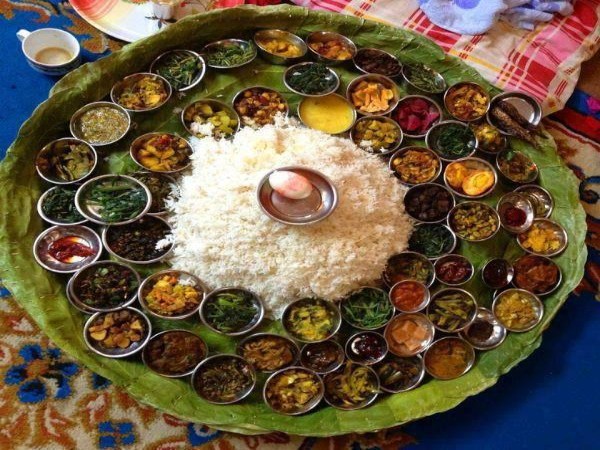
Out on the veranda, I see myself, warmed by the sun, and I begin the polishing session. My nostrils turn numb from Brasso’s sting.
I recall how the chore felt like a punishment writ large. The first innings was all about plotting the grand escape. Thoughts of friends languishing in leisure made me burn with envy. But the truth was, every child suffered the same malady. Loud music from the neighbour’s stereo offered much-needed relief.
It was the year of Hrithik Roshan, and the neighbourhood celebrated him as though he were the son of our soil. Teenagers limped joyfully to the hook step, swaying to Kaho Naa… Pyaar Hai. The song lifted my spirits even as Brasso blackened my hands. I whispered to myself: Time for new clothes. It was our family ritual to end the shopping spree with a plate of hot chowmein and sizzling pork sausages at the Great China restaurant on H.D. Lama Road. Instantly, my hands infused with renewed power, grew swift, rhythmical, with every stroke of Brasso. There were occasional stops to practice Hrithik’s hook steps, sometimes battling thoughts of new shoes selling out at Mahakal Market, the lone shopping complex back then.
I stop here to smile. But I feel a shiver slowly filling the contours of my body. A dark silhouette of another memory hangs loose. That year, around Dashain, a man from the tea gardens committed suicide after their wages were postponed.
In the corridors of my mind, the local channel plays out.
The vignettes appear.
A shabby room, shielded by tin walls, soggy earth for a floor, two children, the dead man’s son and daughter, dirty as though they had been wrestling in the mud, smiling shyly into the camera. A manifestation of a young mind’s bereavement. Then, the camera traversed the expanse of the courtyard. Neighbours, all tea-pickers, stood aghast, dirtied by injustice. A yellow gumboot is peeking into view. Wearing it was a man whose eyes seemed to have left Earth long ago.
The cold churning returns. Hollow like a hunger pang. When I was a teenager, the only name I could ascribe to the sentiment was trepidation. I had never seen that side of my community. Now, decades later, I recognise it as guilt. Everything I wanted for Dashain was someone else’s three months’ wages.
Then I see a cup of black tea.
I despise the fact that we drank tea at the cost of our own people’s lives.
“This is tragic, but this is life,” the neighbours gossip pools about my ears. They are sipping hot black tea. The audacity to gulp down the truth, I recall, had baffled me.
Little did I know, the joke was on me.
Darjeeling tea never stayed in Darjeeling. It was not for the locals.
‘You are an imposter.’ I hear a voice in my head.
Growing up, I never expressed my discomfort to my friends and family. I disliked the risk of baring my soul. I perceived vulnerability as a weakness. I guarded my privacy with my life. I also feared being called uncool because morbid thoughts about life and death plague what teenager? But out of curiosity, I tried to solicit a response from my friends at school.
Did you watch the local channel yesterday?
No.
So, I turned to my diary. I wrote about my first brush with mortality. A naïve discourse on depravity. I penned my first poem, Somebody’s family is dying. But I remember nothing more than the title now.
I have lost those writings, but I still feel it. The guilt. The shock. I recognise the shame that silently plagued me. I understand now that awareness alone does not free you. You carry it quietly, in small, persistent ways: a hesitation, a glance, a thought of someone else’s life when you sip your tea.
It comes uninvited. The dead eyes flash through my mind. Sometimes I see the knee- grazing yellow gumboots. I see it for what it is.
It was not just a shield against the storm. It is rather a symbol of the storm.
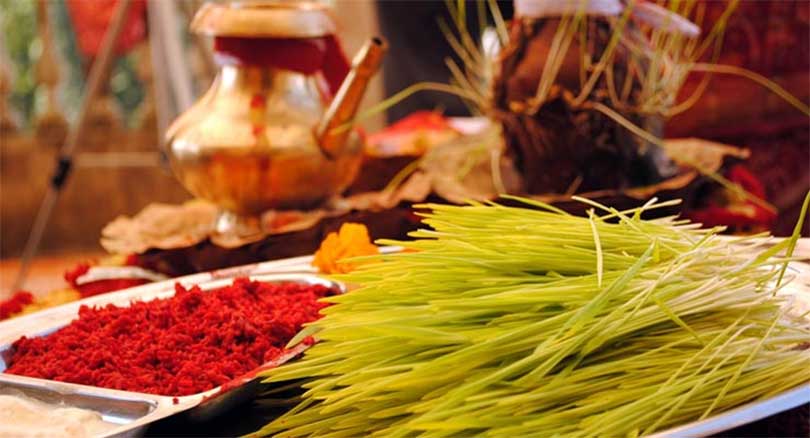
‘Dashain comes every year, but not every household is greeted by the same festival.’
The sibilant whisper awakens a civilization of goose bumps on my arms.
The Hrithik Roshan track has fallen silent.
In the silence, the cacophony rises.
I hear not just my mother’s voice, but the steady traffic of neighbours walking in and out of our home. Some complain about delayed bonuses. Some warnings about thieves at Orient oralo. I can still feel the furtive glances of the neighbors toward my blackened hands. ‘Still using Brasso? Try using Dara. It is the best.’ A cackle breaks out at a quip: “Kete keta ko lagi Dashain, thulo manchey lai dasa.” But I fail to connect the ‘dasa’ and the ‘suicide.’
I hear quarrels over koseli for the elders. Honey Bee and Old Monk suddenly become matters of prestige.
“No, no. Teachers is the best. Don’t you come to my house with a bottle of Honey Bee.”
“No sweets from Beech Galli, please. They’re hard as stones,” someone insists, favouring pricier ones.
Dashain slowly reduced from a festival to a brand.
It was the year 2000. Looking back, that was the year socio-economic dynamics shifted. Simple things acquired complex meanings. Cozy wooden homes turned into lanky buildings, concealing Kanchenjunga.
That year, as the man’s suicide lingered in whispers, the stereo kept blasting music. Merrymaking continued.
Dressed in my new clothes, I see myself dancing, but something inside me has stopped moving.
Memories flip through my mind at lightning speed.
Verandas shape and shift. Flags changing colours. Among the sundry items on display, the khas bara has quietly vanished. Bronze plates, spoons, glasses, jugs, and vases, once polished to perfection, are now ragged remnants of the past. They no longer fit within the definition of a ‘brand’.
Somewhere between Brasso and the bonus, between bronze and brand, Dashain itself has slipped beyond my recognition.
I open my eyes.
I still see home.
It is in the autumnal sky, in the shape of the thin clouds, and a whisper escapes my lips. Dashain aayo.
Writes – Prerna Rai Dewan. She is the author of “The Oblique Rays of Sunshine“

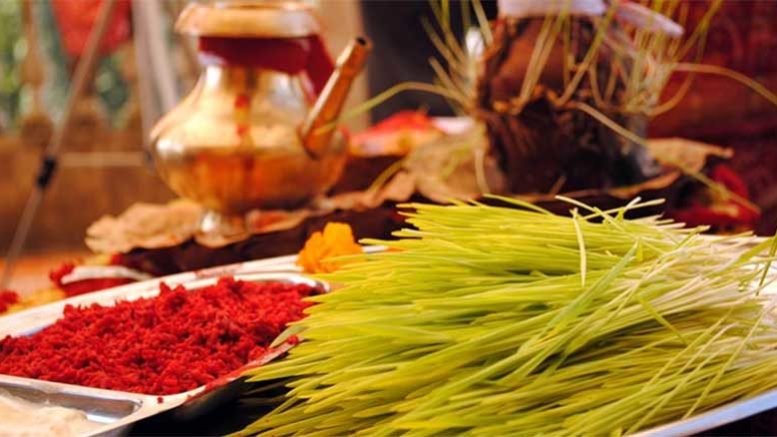
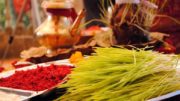
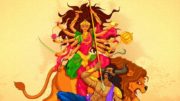
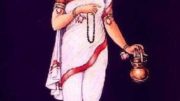
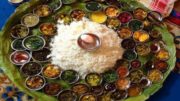
I am fond of Prerna’s quality writing. I bought her novel ‘Oblique Rays of Sunshine’ about two years ago. This article has reminded me and I have read this till the end. The only thing I would perhaps say is if the language would have been lucid, not so academic English. Not everyone has good level of English like the writer. I had to read her novel three more times to understand well, and this article has followed her style. But, personally I admit that unless some writers write like this, the new readers wouldn’t be catching up great vocabulary.
Interesting article…Dashai Aayo….it gave a hearty touch to our traditional and cultural festival. Love to read again from Prerna Rai.